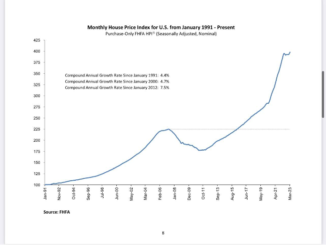
There are plenty of challenges for renters and homebuyers this year, especially when it comes to affordability. But technology — particularly leveraging generative AI — can help solve these challenges in new ways. At least, that was the premise of the FHFA’s 2024 TechSprint last week, which focused on innovative housing use cases for gen AI.
The sprint culminated with a demo day on Thursday where 12 teams presented their solutions to a panel of technology, regulation and housing experts. The teams produced some impressive results, providing a roadmap for enterprising companies looking to harness gen AI.
The use cases were organized around four focus areas:
Consumer experience
Assessing creditworthiness
Operations and risk management
Compliance.
At FHFA’s first-ever tech sprint last year, the focus was on the front end of mortgage lending and increasing tech adoption. This year, the FHFA expanded the housing issues they wanted to consider, adding multifamily and servicing into the mix, and focused specifically on where gen AI can be deployed.
Each team presenting a use case had to address risk and compliance concerns. Hallucinations, false positives and inaccuracies were just some of the risks identified and AI is even less “set it and forget it” than other kinds of technology. AI is learning all the time, which means it has to be fed and trained on accurate, up-to-date data. Those updates have to be baked into the process from the beginning.
Below is a summary of all 12 gen AI proposals. The first four listed were recognized by the FHFA as the most promising use cases for their particular focus.
Domino.AI Multifamily renting
An Uber-like experience to match today’s 30 million renters with property managers, Domino would provide tenants with a personalized readiness rating.
The app would pull a credit report, do a background check and preapprove a tenant at certain price points so the renter knows what monthly payment they can afford.
The renter is presented with results they are prequalified for that fit their criteria and the app connects them with landlords/property managers.
Compliance note: Lots of opportunity for fraud (especially by other AI), so guardrails needed.
Awarded most promising use case of gen AI for user experience.
Homeowners Assistance Model (HAM) Single-family servicing
Focuses on early identification and intervention for distressed borrowers starting at 32 days late to keep them in the home.
HAM flags the loan, does a review, creates an intervention plan and contacts the borrower to review options. HITL verifies the plan.
Serves as relationship-building tool for servicers.
Compliance note: Personally identifiable information has to be stripped out before AI is involved and a human needs to verify the mitigation plans.
Awarded most promising use case of gen AI for assessing creditworthiness.
Fraud detection tool Multifamily
Utilizes Ai to combat AI-related fraud, including deep fakes, in multifamily operations.
Replaces manual, human-based processes to improve speed and accuracy of fraud detection.
Best use cases are larger multifamily operators as it needs lots of training data to accomplish.
Compliance note: Synthetic data could eliminate the need for a large data set.
Awarded most promising use of gen AI for operations.
ADA Comply Multifamily
Web application using image assessment to ensure multifamily units are ADA compliant to meet GSE fair housing goals.
Using photos, ADA Comply would flag which parts of the unit are not compliant and generate new photos showing how they could be fixed, like a before and after of the property.
Would also provide a cost estimate for the fixes.
Compliance note: Takes a “no sticks, just carrots” approach with incentives.
Awarded most promising use of gen AI for risk and compliance.
Loan Buddy Single-family origination
Focused on helping limited English proficiency (LEP) buyers with the mortgage process, Loan Buddy would convert documents, explain terms, offer overviews and answer question in the user’s chosen language.
Designed as a co-bot, Loan Buddy would direct questions to a human on the loan team if it had low confidence in its answer. Conversations with Loan Buddy would be recorded and available to the loan team.
Many LEP borrowers are mobile-first, so Loan Buddy would be optimized for mobile.
Compliance note: Data would be deleted after a seven-day period to address privacy concerns.
Tool to drive new capital to the multifamily space Multifamily investing
This tool would simplify multifamily investing to attract new players and/or make it easier for existing investors to acquire or renovate properties.
The tool provides information on all multifamily opportunities in a given area that match the user’s money and experience level. Basically an AI mentor to hold the investor’s hand through the process and surfaces opportunities and resources.
The app identifies assistance programs that could be used, puts together a proforma and builds a business case for the investment.
Compliance note: Pulling in data from vetted sources should decrease risk.
DPA Navigator Single-family origination
Simplifies and automates the downpayment assistance process for DPA providers and lenders with a DPA search app that that matches the borrower and loan characteristics with current, available DPA resources.
Utilizes a lenders’ existing workflow to make it easier to access DPA. Takes data used for AUS to pass through a large language model.
There are 5.8 million renters who could afford a mortgage if they had down payment assistance.
Compliance note: Data integrity is paramount and the AI would need fresh information as DPA money was used and no longer available.
AI 4 Fairness Single-family refinancing
Goal is to increase refinancing opportunities for Black and Latino borrowers by improving their creditworthiness and ensuring fair valuation of their properties.
Increase education about refinancings for borrowers who traditionally don’t even try to get a refinance.
Guided by AI, a homeowner measures their home and takes pictures. The tool checks the data for accuracy against other sources and filters out sensitive private information and images to mitigate bias in the process.
Compliance note: There is a risk of failing to accurately analyze property data, which can be mitigated through validating the data through other sources.
Mortgage Mind AI Single-family origination and servicing
Consolidates and synthesizes regulations to give lenders and servicers the answers they need in one place as it encompasses all the agencies and regulators.
Unlike current solutions that simply surface the legal text, Mortgage Mind would provide guidance from agencies and circumstances that could affect interpretation.
Envisioned as an industry utility.
Compliance note: The inconsistencies and overlapping of guidance between different federal agencies and between state and federal agencies makes this difficult.
Gen AI solution for Repurchases Single-family origination
Combat the number of repurchases through gen AI that can “liberate” data from information-rich repositories at the GSEs to better understand risk and identify things like bias.
This would be accomplished by creating a “digital twin” of the mortgage market using synthetic data that trains underwriters and predictive models.
Synthetic data is artificially generated data from simple rules, statistical modeling, and simulation, already used by SWIFT and other financial organizations.
Compliance note: Ethical controls must be in place.
Requiem Single-family origination
Provides real-time compliance and QC feedback based on existing regulation and company policies to decrease cost to originate.
Reverses the QC process to happen from the start.
The co-bot would listen in on client conversations and give immediate feedback. For example, it could detect that a loan officer didn’t offer a VA loan to a qualified borrower so it would prompt that.
Compliance note: Would require leveraging a mortgage-specific LLM from open source.
Precision AI Compliance Engine (PACE) Single-family lending
An industry-sponsored solution led by an FHFA consortium that would reduce barrier for entry for AI adoption.
PACE would be a trusted third party to validate transactions and create an artifact for future audits.
Context-aware LLM would conduct continuous assessment of policy compliance, real-time loan quality assessments and look at every application, not just a sampling.
Compliance note: Consumers would give consent multiple times during a long session.



